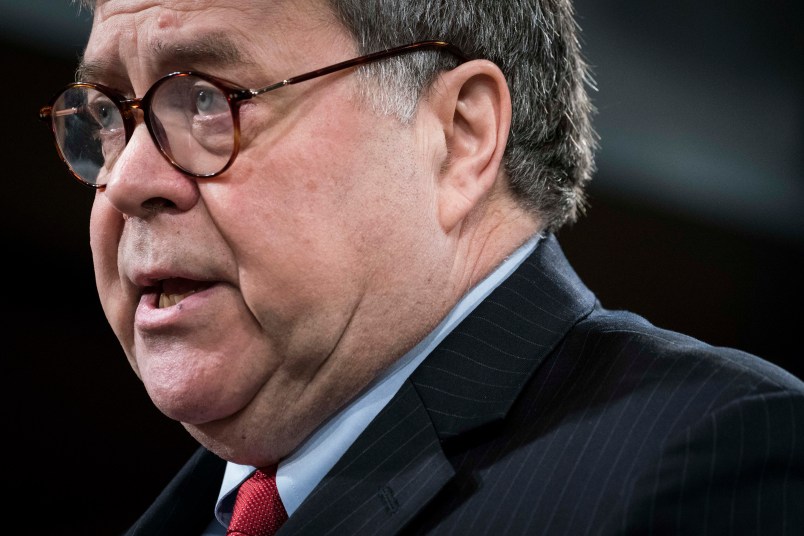The Justice Department has taken issue with Maine’s policy of requiring that out-of-state travelers self-quarantine for two weeks upon arrival in the state.
The Department filed a statement of interest Friday in a case brought by private challengers who are objecting to how the policy has been applied to Maine campgrounds and RV parks.
The DOJ filing is the latest in a series of such statements — which are essentially “friend of the court” briefs that allow the U.S. government to brief judges on its own views of the law — that the Trump administration has filed in cases across the country challenging COVID-19 public health orders.
So far, most of the DOJ briefs have had to do with defending churches whose in-person services were limited by state or local public health orders. Last week the administration also backed an Illinois Republican lawmaker who had a refused to wear a mask within the state Capitol.
Altogether, the cases are part of an initiative announced by Attorney General Bill Barr to go after COVID-19 public health orders that allegedly amount to constitutional “overreach.” The initiative was announced while President Trump was increasing the pressure on states to reopen their economies.
The Justice Department suggested that Maine’s current policy violates a clause in the U.S. Constitution that guarantees that “Citizens of each State shall be entitled to all Privileges and Immunities of Citizens in the several States.” It argued the Maine policy was unenforceable under that clause because it was “insufficiently tailored” to meet the state’s public health objectives.
“It is unclear why the Governor requires every out-of-state resident to self-quarantine for 14 days before patronizing plaintiffs’ campgrounds,” the Justice Department said. “Had Maine imposed such a burden only on residents from COVID-19 hot spots, such as New York City, this might be a different case. But Maine requires travelers from every corner of the Union to quarantine themselves upon arrival, even if they hail from jurisdictions (such as nearby Vermont) that have fewer confirmed cases of COVID-19—either as an absolute matter or per capita—than Maine does.”
The Maine policy applies to both non-Maine residents and Mainers who are returning to the state after out-of-state travel.
In a brief filed earlier this week, Maine responded to similar legal arguments made by the private challengers in the case, calling the arguments wrong as both “a matter of law and a matter of fact.”
“Under Jacobson, the test is not strict scrutiny and a perfect fit is not necessary,” the state said, referring to a Supreme Court decision relevant to the current case. “Even so, the self-quarantine requirement is narrowly tailored to advancing the State’s interest in controlling the spread of COVID-19 and protecting Maine’s health care system. ”
Maine’s defense of its policy noted the potential that its health care system would be severely overburdened, if the COVID-19 was to spread among those traveling in from out of state. Its health care system — where only 165 critical care beds are currently available — is designed for only 1.3 million, while the state received more that 22 million out-of-state visits last year.
“Risk is minimized by ensuring that the vast majority of persons who enter the state do not interact in the community until it is more certain that they were not carrying the COVID-19 virus at the time of their arrival,” Maine said. “Self-quarantine both controls the spread of the virus and reduces the possibility that Maine’s health care system will be over-taxed by a sudden flood of new cases.”
Read the DOJ filing and Maine’s brief defending the policy below:







What’s really behind this? Because Hawaii has been doing it for months now.
And Barr and the rest of the GOP should know about Hawaii, it’s where Obama was born.
“I don’t know. I think I liked the deck chairs better over there.” - Unsinkable Something Something
What’s really behind this? We have a Democratic female governor that is intelligent, level headed and makes wise decisions. She replaced Paul Lepage who touts himself as Trump before Trump was cool.
We’ve had this in Alaska for months too. But we have a teabagger governor so the DOJ is looking the other way apparently.
DT limited his travel ban to hot spots early on, and then the US quickly became number one in confirmed cases.